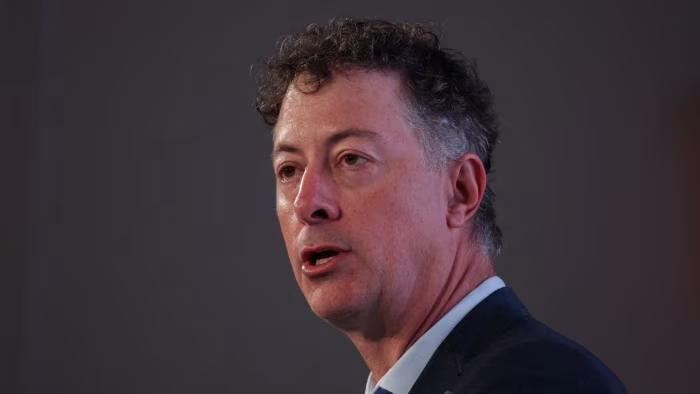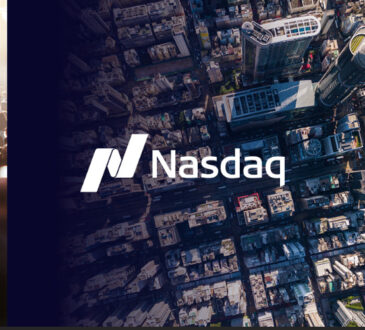
One scoop to start: Hedge fund Lone Pine Capital is launching a concentrated and long-term fund in response to how aggressive “multi-strategy” hedge funds and passive investors are rewiring the stock market.
And another scoop: Private equity group Advent International is in early talks about a possible sale of its Parfums de Marly business, in the latest sign of a dealmaking frenzy in the fast-growing fragrance market.
Welcome to Due Diligence, your briefing on dealmaking, private equity and corporate finance. This article is an on-site version of the newsletter. Premium subscribers can sign up here to get the newsletter delivered every Tuesday to Friday. Standard subscribers can upgrade to Premium here, or explore all FT newsletters. Get in touch with us anytime: Due.Diligence@ft.com
In today’s newsletter:
-
Activist funds convene at 13D
-
Dubai’s real estate mogul looks abroad
-
The next Northvolt in Sweden?
Activist investors convene at the Pierre Hotel
The marbled hallways at The Pierre hotel in New York buzzed with chatter on Tuesday about a surge in shareholder activism.
It was the marquee annual gathering for activist hedge funds at the 13D Monitor Active-Passive Investor Summit, where investors and advisers swap notes on who’s preying and being preyed on.
Investors’ obsession with artificial intelligence stocks and little else has created a market full of have-nots trading at low valuations and susceptible to calls for activist shake-ups.
“They’re readying the knives,” one adviser at the event told DD’s Oliver Barnes and Amelia Pollard.
Oil and gas equipment supplier Baker Hughes and eyecare group Cooper Companies were among the companies facing the glare of activist investors at the conference.
Starboard Value’s co-founder Jeff Smith took the stage early in the morning. He lobbied for Tripadvisor to sell off its restaurant bookings platform or even put itself up for sale, as well as outlining investments in construction group Fluor and payments company Bill Holdings.
This year is on course to be a record one for shareholder activism, with 191 campaigns launched in the first three quarters, ahead of the same period during 2018, the previous high-water mark, according to a report by Barclays.
Even American football star Travis Kelce is getting in on the action. He’s teaming up with activist hedge fund Jana Partners to push US theme park operator Six Flags to revamp its marketing strategy and customer experience, the firm also unveiled at the event.
Waiting in the wings as activist hedge funds are busy agitating for change are private equity groups, emboldened by abundant financing and ready to pounce on smaller companies unloved by the public markets.
The destination of many of these companies could ultimately be the same as medical technology group Hologic, which was taken private by a consortium in an $18.3bn deal on Tuesday. The company has been a perennial take-private candidate since Carl Icahn became its largest shareholder in 2013.
While Icahn has long since sold his position, Hologic’s noisy corporate structure failed to win a high valuation from shareholders.
Now, with banks offering cheap credit to finance a brewing wave of mega deals, Hologic has found a new home inside the portfolios of Blackstone and TPG.
Other large but middling public companies could soon face a similar fate.
Burj Khalifa’s builder goes beyond Dubai
Catch up these days with Mohamed Alabbar, the billionaire Dubai developer behind the world’s tallest skyscraper, and there’s a high chance he has just jetted in from Madagascar or Montenegro, or Angola or Albania.
But the Middle East’s most prolific businessman isn’t taking holidays.
Credited with a key role in building modern Dubai, which is today flying high on unprecedented population growth and its third property bull run, Alabbar is now going outside the United Arab Emirates to expand his empire.
In many ways, his overseas ambitions reflect the UAE’s own push beyond its borders.
Abu Dhabi’s sovereign wealth funds have made investments all over the world, while companies like Dubai-controlled DP World operates in more than 80 countries.
The UAE is “a small country”, Alabbar said. But by investing in markets shunned by western investors, he asked, “can we have a one billion population economy?”
The managing director of Dubai-government backed Emaar and chair of Abu Dhabi-based Eagle Hills sat down with the FT’s Chloe Cornish for a rare two-day interview.
Read the full story for how he wants to build his own Bali, his distaste for meetings, and why he hates being called a billionaire.
Europe’s green ambitions yield sea of red ink
Northern Sweden was meant to be home to a new centre for green industry in Europe. So far it has turned out to be where billions of euros from big investors and banks have been squandered.
Stegra, once known as H2 Green Steel, is the latest start-up to run into trouble.
The Swedish green steel group raised about €2bn in equity from the likes of Altor, GIC, Hy24, Just Climate and a number of industrial backers such as Siemens, Mercedes-Benz, Microsoft and Scania.
And it has brought in more than €4bn in debt from the likes of the European Investment Bank, BNP Paribas, Santander, Société Générale, UniCredit, ING and Citibank.
Yet now Stegra is facing a sudden financing crisis, the FT’s Richard Milne reports.
At a board meeting earlier this month it blamed delays, cost overruns and a lack of government support for a jump in its funding gap from about €500mn in July to as much as €1.5bn now.
Lawyers from Mannheimer Swartling, one of Sweden’s top firms, told the board at the same meeting about the risk of insolvency and how they should make decisions about whether wages are paid.
For many observers, Stegra’s fate is starting to resemble that of Northvolt, the great European battery hope that went bankrupt at the end of last year despite raising $15bn in debt, equity and subsidies from the likes of Goldman Sachs and Volkswagen.
Both were started by the same Swedish financier duo: Harald Mix and Carl-Erik Lagercrantz, with their Vargas investment vehicle.
And both also used similarly structured financing arrangements of debt and equity as well as customer offtake agreements.
Stegra’s creditors held a meeting yesterday with the company to hash out the way forward. One participant described things as “cautious but constructive”.
Stegra says it’s in the process of raising a further €1bn in debt and equity, and has many levers to pull to avoid a cash shortage.
Little wonder if investors and banks think twice before the next big European green industrial project.
Job moves
-
Latham & Watkins has hired Ryan Preston Dahl, Benjamin Rhode and Natasha Hwangpo as partners in the firm’s restructuring group. They previously worked for Ropes & Gray.
-
Boston Consulting Group has appointed Amyn Merchant as its new chief risk officer to oversee tougher internal controls and whistleblower procedures. The previous chief risk officer Adam Farber resigned in July after revelations that BCG helped establish the Israeli-backed Gaza Humanitarian Foundation.
-
The chair and six independent directors of Novo Nordisk are stepping down after a dispute with the Danish drugmaker’s majority shareholder, the Novo Nordisk Foundation.
-
Thoma Bravo has appointed Jeff Levin and Kunal Soni as partners to lead the firm’s credit business. They previously worked at Morgan Stanley.
-
HSBC has promoted Giulio Hoffmann to a new role as global head of power, utilities and renewables.
Smart reads
Best in class Golf cart tours, personalised parking spaces and weeknight filet mignon. The Wall Street Journal explains how a small college in North Carolina has become the school where “half of Wall Street sends their kids”.
Crumbling value As global investors offload Chinese commercial property at pennies on the dollar, a troubled $140bn bet on the country’s real estate is about to get even worse, Bloomberg reports.
Fear mongering While critics warn that BBVA’s failed 18-month pursuit of Sabadell has damaged the prospects of a number of other potential European banking mergers, there are still deals to be done, writes Lex.
News round-up
Warner Bros Discovery to launch strategic review after fielding takeover interest (FT)
Unilever’s €15bn ice cream spin-off delayed by US government shutdown (FT)
Space groups near deal on creation of European champion (FT)
Lawyers and accountants push back against UK anti-money laundering reforms (FT)
John Malone’s Liberty halves its stake in ITV after a decade (FT)
L’Oréal chief says Chinese market stabilising as beauty giant eyes more deals (FT)
Due Diligence is written by Arash Massoudi, Ivan Levingston, Ortenca Aliaj, Alexandra Heal and Robert Smith in London, James Fontanella-Khan, Sujeet Indap, Eric Platt, Antoine Gara, Amelia Pollard, Maria Heeter, Kaye Wiggins, Oliver Barnes and Jamie John in New York, George Hammond and Tabby Kinder in San Francisco, Arjun Neil Alim in Hong Kong. Please send feedback to due.diligence@ft.com




